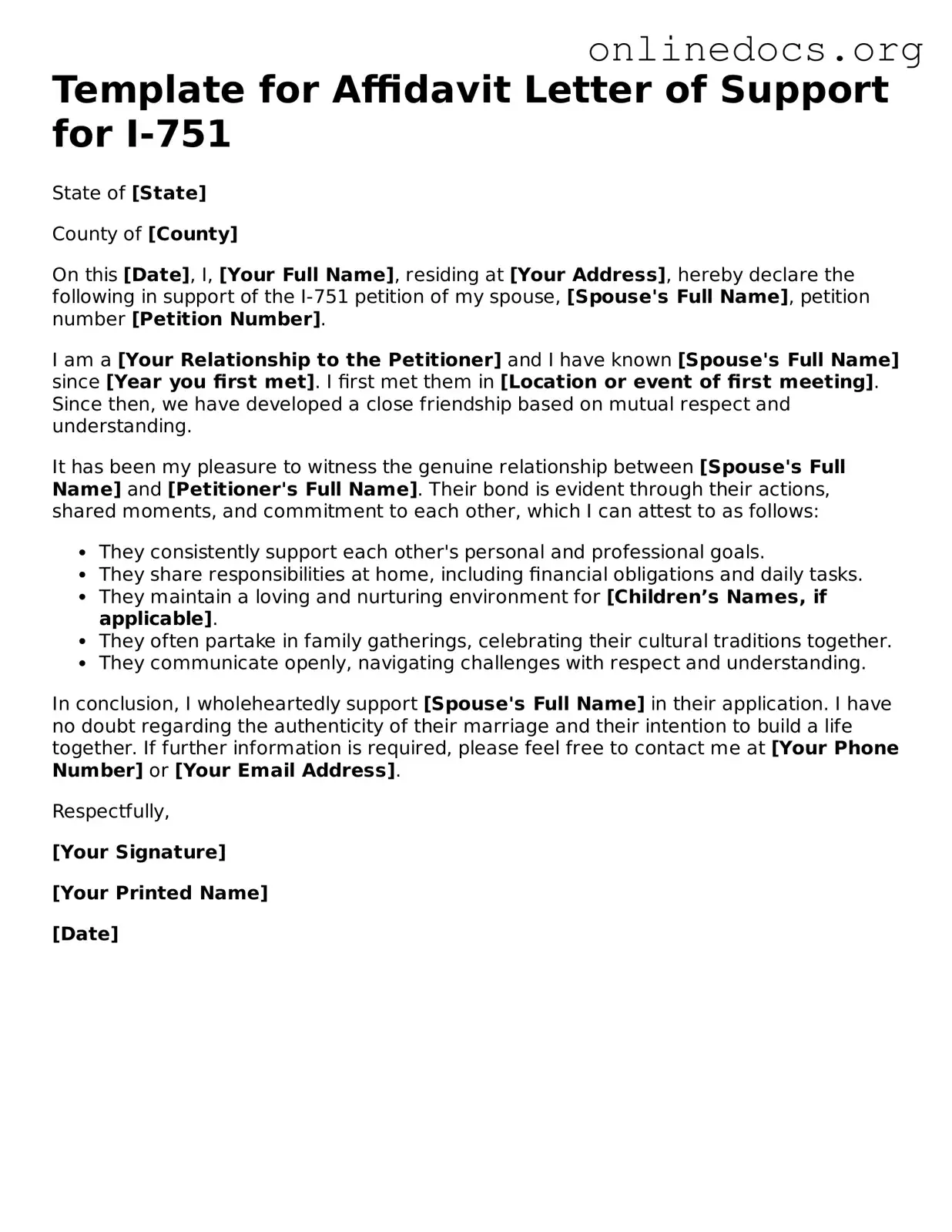Filling out the Affidavit Letter of Support for the I-751 form is a crucial step for those seeking to remove conditions on their permanent resident status. However, many individuals make common mistakes that can lead to delays or denials. Understanding these pitfalls can help ensure a smoother application process.
One frequent mistake is failing to include the required personal information. Applicants often overlook the necessity of providing full names, addresses, and contact details of both the affiant and the couple. This information is essential for verifying the relationship and ensuring the affidavit is credible.
Another common error is not having the affidavit signed. Some people forget that the affiant must sign the document in front of a notary public. A signature is a critical element that validates the affidavit. Without it, the application may be considered incomplete.
Many applicants also neglect to provide specific details about the relationship. General statements about love and commitment are not enough. Instead, the affidavit should include anecdotes, shared experiences, and evidence that illustrates the authenticity of the relationship. This helps to paint a clearer picture for immigration officials.
Additionally, people sometimes submit affidavits that are too brief. While conciseness is valuable, an overly short affidavit may lack the depth needed to convey the relationship's legitimacy. Providing ample information can significantly strengthen the case.
Another mistake is failing to include supporting evidence. Affiants should attach relevant documents, such as photographs, joint bank account statements, or lease agreements, to bolster their statements. This additional evidence can provide context and support the claims made in the affidavit.
Some individuals also misinterpret the purpose of the affidavit. It is meant to support the couple’s claim of a bona fide marriage. Therefore, the affiant should focus on their personal observations and experiences with the couple rather than making legal arguments or assumptions about immigration law.
Inconsistent information can be a red flag. If the affidavit contradicts other documents submitted with the I-751 form, it may raise suspicions. Applicants should ensure that all statements are consistent across their application materials.
Moreover, people sometimes forget to proofread the affidavit. Spelling errors or grammatical mistakes can detract from the professionalism of the document. A well-written affidavit reflects attention to detail and seriousness regarding the application.
Finally, failing to meet submission deadlines can be detrimental. Applicants must be aware of the timelines associated with the I-751 process and ensure that all documents, including the affidavit, are submitted on time. Delays can lead to complications in the application process.
